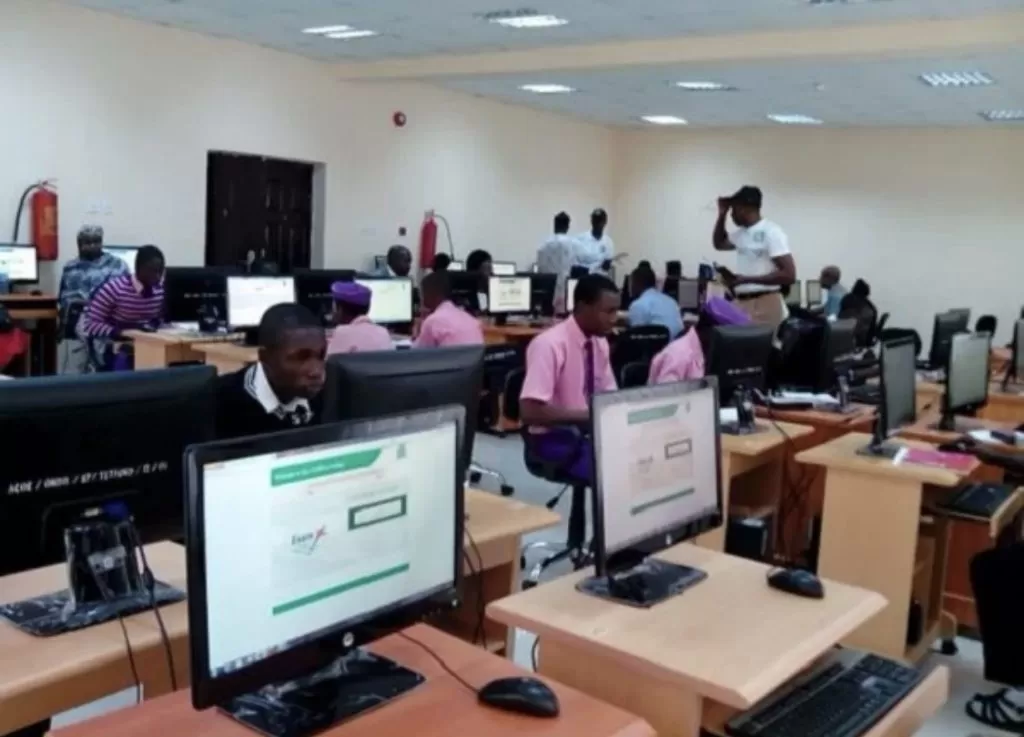Over 1.5 Million Candidates Score Below 200 in 2025 UTME: Implications and Insights

Screenshot
The 2025 Unified Tertiary Matriculation Examination (UTME), conducted by the Joint Admissions and Matriculation Board (JAMB) from April 25 to May 5, 2025, has once again highlighted the challenges within Nigeria’s education system. According to JAMB’s statistical analysis, over 1.5 million candidates—approximately 77.87% of the 1.9 million whose results were processed—scored less than 200 out of a possible 400 marks. This figure, while marginally higher than the 76% who scored below 200 in the 2024 UTME (1,402,490 out of 1,842,464 candidates), has sparked widespread debate about the state of secondary education, examination preparation, and the accessibility of tertiary education in Nigeria.
A Breakdown of the 2025 UTME Results
The 2025 UTME saw an unprecedented registration of over 2 million candidates, making it one of the largest in JAMB’s history. Of the 1.9 million results released, the performance distribution revealed a stark contrast between high and low performers:
- Only 4,756 candidates (0.25%) scored 320 and above, placing them in the elite percentile.
- 7,658 candidates (0.4%) scored between 300 and 319.
- 334,560 candidates (17.6%) scored between 200 and 249.
- The remaining 1.5 million candidates, constituting the vast majority, scored below 200.
Historically, a score of 200 has been a common benchmark for university admissions, though individual institutions often set higher cut-off marks. The fact that nearly 78% of candidates fell below this threshold underscores the competitive nature of the UTME and raises questions about the factors contributing to such outcomes.
Comparing 2025 to Previous Years
JAMB’s claim that the 2025 UTME performance showed marginal improvement over 2024 has been met with skepticism. In 2024, 76% of candidates scored below 200, compared to 77.87% in 2025. While the absolute number of candidates scoring below 200 increased due to higher registration numbers, the percentage increase suggests that systemic challenges persist. For instance, in 2023, 78% of candidates scored below 200, indicating a consistent trend of low performance over the years.
The slight uptick in the failure rate has fueled discussions on platforms like X, where users have expressed concern over JAMB’s optimistic framing of the results. Some argue that the marginal increase in the percentage of candidates scoring below 200 contradicts claims of improvement, while others point to broader issues such as inadequate preparation, overcrowded classrooms, and limited access to quality educational resources.
Factors Contributing to Low Performance
Several factors may explain the high percentage of candidates scoring below 200 in the 2025 UTME:
- Quality of Secondary Education: Many candidates come from underfunded public schools with outdated curricula, insufficient teaching staff, and limited access to learning materials. This creates a significant gap in preparedness for a high-stakes examination like the UTME.
- Examination Difficulty: The UTME is designed to test a broad range of subjects, requiring candidates to demonstrate proficiency across multiple disciplines. For students with uneven preparation, achieving a balanced performance can be challenging.
- Socioeconomic Barriers: Many candidates lack access to private tutoring, study materials, or reliable internet for online preparation, which are often critical for success in competitive exams.
- Examination Malpractice: Despite JAMB’s efforts to curb cheating, malpractice remains a concern. The board reported arrests for forged results and other irregularities in 2025, which may have impacted the overall result pool.
- Psychological Pressure: The UTME is a high-pressure exam with significant implications for candidates’ futures. Test anxiety and the fear of failure can hinder performance.
JAMB’s Response and Mitigation Measures
JAMB has emphasized its commitment to improving the examination process and ensuring fairness. In 2025, the board implemented stringent measures to combat malpractice, including the use of advanced biometric verification and real-time monitoring of examination centers. The arrests made for forged results underscore JAMB’s zero-tolerance policy.
Additionally, JAMB has highlighted alternative pathways for candidates who scored below 200 or did not sit for the UTME. For example, institutions like the University of Ibadan have introduced open distance e-learning (ODeL) programs, which provide flexible admission criteria for students seeking tertiary education. These programs aim to bridge the gap for candidates who may not meet traditional admission requirements but are eager to pursue higher education.
Public Reaction and Policy Implications
The 2025 UTME results have ignited discussions about the need for systemic reforms in Nigeria’s education sector. On X, users have voiced frustration over the consistently high failure rates, with some calling for a review of the UTME’s structure and others advocating for increased investment in secondary education. The sentiment reflects a broader concern that the current system may not adequately prepare students for the demands of tertiary education or the workforce.
From a policy perspective, the results underscore the urgency of addressing disparities in educational access and quality. Initiatives such as teacher training, curriculum modernization, and equitable distribution of resources could help improve student outcomes. Additionally, expanding alternative education pathways, such as vocational training and e-learning, could provide viable options for candidates who struggle with the UTME.
Looking Ahead
The 2025 UTME results serve as a sobering reminder of the challenges facing Nigeria’s education system. While JAMB’s efforts to maintain examination integrity and provide alternative pathways are commendable, the high percentage of candidates scoring below 200 highlights the need for broader reforms. Stakeholders, including government agencies, educational institutions, and civil society, must collaborate to address the root causes of low performance and ensure that all students have the opportunity to succeed.
For the 1.5 million candidates who scored below 200, the journey to tertiary education may be more complex, but it is not insurmountable. With determination, access to alternative programs, and systemic support, many can still achieve their academic and professional goals. As Nigeria continues to grapple with these challenges, the 2025 UTME results will likely remain a catalyst for ongoing discussions about the future of education in the country.






